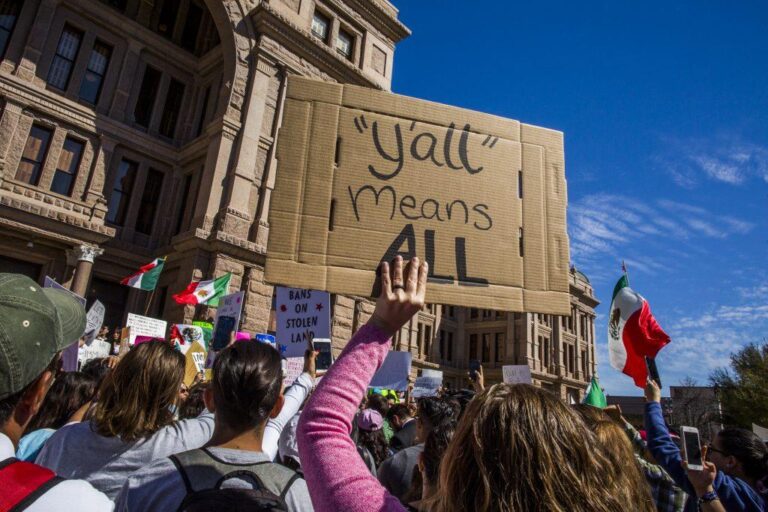San Antonio and Sanctuary City Status: A Comprehensive Overview
With immigration policy remaining a hot-button issue across the United States, many are curious about San Antonio’s position: Does this Texas city qualify as a sanctuary city? This article delves into San Antonio’s immigration-related policies, its collaboration with federal agencies, and the broader effects on local communities. By analyzing official policies, recent legal battles, and community impacts, we provide an updated perspective on San Antonio’s role in the national sanctuary city conversation.
Understanding San Antonio’s Immigration Policy Framework
Rather than adopting a straightforward sanctuary city label, San Antonio has crafted a multifaceted approach to immigration enforcement that balances public safety with immigrant protections. The city’s leadership has implemented policies that restrict local law enforcement from fully cooperating with federal immigration authorities, especially regarding detaining individuals solely on immigration holds without judicial warrants. Additionally, San Antonio invests in programs that support immigrant communities, including legal aid and housing assistance, fostering a supportive environment while adhering to legal standards.
Key Elements of San Antonio’s Immigration Policies
- Restrained ICE Collaboration: Local police typically avoid questioning immigration status during routine stops.
- Community Trust Initiatives: Efforts to build rapport between immigrant populations and law enforcement.
- Legal Aid Funding: Resources allocated to assist immigrants with legal challenges.
- Worker Rights Protections: Ordinances designed to prevent exploitation in workplaces regardless of immigration status.
| Policy Area | San Antonio’s Approach | Community Impact |
|---|---|---|
| ICE Detainer Compliance | Honors only valid court-issued warrants | Reduces unwarranted federal detentions |
| Police Cultural Training | Focus on rights awareness and cultural competence | Enhances trust between officers and immigrant communities |
| Immigrant Legal Support | Funding for immigration attorneys and legal clinics | Improves immigrants’ access to justice |
Effects of San Antonio’s Immigration Policies on Public Safety and Community Relations
San Antonio’s approach to immigration enforcement has generated a complex dialogue about its influence on both safety and immigrant integration. Advocates highlight that limiting local cooperation with federal immigration authorities encourages undocumented residents to report crimes and engage with police without fear of deportation. This dynamic reportedly strengthens community policing and enhances overall public safety. Moreover, these policies contribute to better social inclusion, allowing immigrants to participate more fully in civic life.
Conversely, opponents argue that such policies may hinder law enforcement’s ability to collaborate with federal agencies, particularly in apprehending individuals involved in serious criminal activities who also have immigration issues. This friction between local autonomy and federal mandates underscores ongoing debates about the balance between protecting immigrant rights and ensuring public security.
- Increased crime reporting and community cooperation due to sanctuary-like protections.
- Potential constraints on law enforcement’s federal collaboration in immigration-related cases.
- Importance of clear policy guidelines to maintain equilibrium between safety and civil rights.
- Positive social and economic integration outcomes for immigrant populations.
| Area of Impact | Benefits | Challenges |
|---|---|---|
| Crime Reporting | Higher rates of community cooperation | Concerns about enforcement gaps |
| Community Trust | Improved relations between residents and police | Jurisdictional conflicts with federal agencies |
| Immigrant Integration | Better access to social services and opportunities | Risk of social isolation in some neighborhoods |
Legal Battles and State-Level Responses to Sanctuary Policies in San Antonio
San Antonio’s immigration policies have faced significant legal scrutiny, especially given Texas’ tough stance on sanctuary cities. The state has enacted laws mandating local law enforcement to cooperate with federal immigration detainers and has threatened to withhold funding from municipalities that do not comply. In response, San Antonio has challenged these mandates in court, asserting its right to govern local law enforcement priorities in a way that best serves its diverse population.
State Government Measures
- Legislation requiring local agencies to honor ICE detainers.
- Financial penalties for cities that resist compliance.
- Efforts to legally prohibit sanctuary city policies statewide.
San Antonio’s Legal and Policy Responses
- Filing lawsuits to protect municipal autonomy.
- Public messaging emphasizing trust-building over punitive enforcement.
- Maintaining limited cooperation with federal authorities within legal constraints.
| Legal Issue | State’s Position | San Antonio’s Stance |
|---|---|---|
| Immigration Detainer Compliance | Mandatory adherence | Selective enforcement based on warrants |
| Funding Penalties | Withholding state funds for noncompliance | Legal challenges to prevent fund cuts |
| Sanctuary Policy Legality | Declared illegal under state law | Advocates for local governance rights |
Strategies for Harmonizing Enforcement with Immigrant Rights in San Antonio
To effectively balance immigration enforcement with the protection of immigrant rights, San Antonio can adopt transparent policies that foster trust and accountability. Training law enforcement officers in cultural competence and legal rights is essential to prevent racial profiling and ensure constitutional protections. Creating independent oversight bodies that include community leaders, legal experts, and police representatives can enhance transparency and dialogue.
Recommended Actions
- Implement policies that restrict collaboration with federal immigration authorities to prevent unwarranted detentions.
- Increase funding for legal aid programs to help immigrants navigate complex immigration processes.
- Launch public education campaigns to inform immigrants about their rights and available local resources.
| Focus Area | Anticipated Benefit |
|---|---|
| Community Policing & Rights Education | Builds trust and encourages crime reporting |
| Expansion of Legal Services | Enhances immigrants’ access to justice |
| Policy Transparency | Clarifies roles between local and federal agencies |
Conclusion: San Antonio’s Position in the Sanctuary City Debate
In conclusion, while San Antonio has adopted policies that limit certain types of cooperation with federal immigration enforcement, it does not officially identify as a sanctuary city under current laws and regulations. The city’s approach reflects a careful balancing act amid ongoing national debates about immigration enforcement, local autonomy, and community safety. As these discussions evolve, San Antonio remains a focal point for examining how cities can protect immigrant communities while upholding public security. The San Antonio Report will continue to provide updates on this critical and evolving issue.




